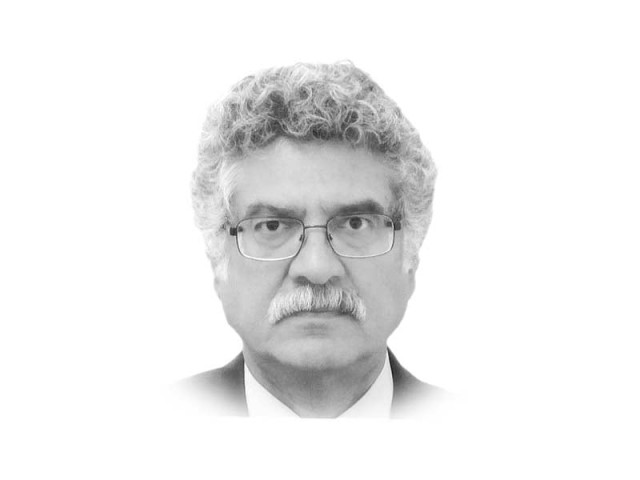External interference in Elections 2018
But what are their motives and who are their paymasters?

The writer is a former Ambassador of Pakistan. The views expressed here are his own
The American record of promoting regime change was acknowledged to Bloomberg News recently by a former US Intelligence chief, James Clapper: that “the US has interfered in over 80 countries ‘in the best interests of the people of those countries”. Iraq, Libya and Syria are the most recent examples of this interference. Earlier, the US toppled the governments of prime minister Mosaddegh of Iran in 1953 and president Allende of Chile in 1973. The CIA is also believed to be behind the killing of Patrice Lumumba, the independence leader of Congo, in 1960 and even UN Secretary General Dag Hammarskjold whose plane crashed in mysterious circumstances in 1961 while trying to resolve the Congo crisis. Several other instances include assassination attempts against president Castro of Cuba, including the notorious Bay of Pigs incident, as well as the Contra scandal that sought to depose president Ortega of Nicaragua in the 1980s. Indeed, the US has a long history of bringing regime change in countries in Latin America, Africa, the Middle East and Southeast Asia, which are too numerous to be recounted here.
With such a history, the Indo-American assault on Pakistan, while not surprising, is extremely deadly. Their motives are driven by the convergence of their interests in the multi-polar world, where Pakistan’s policies are seen to be at variance from their joint strategic interests, especially in South Asia. The Indo-US partnership to contain China is constrained by Pakistan’s historical relationship with China which has grown further with CPEC as part of China’s OBOR project. Moreover, unlike other South Asian states, Pakistan is strong enough to reject Indian hegemony which undermines India’s regional role that America supports to contain China. Even worse from Washington’s perspective is the fact that Pakistan is the only Muslim country with nuclear weapons, ensuring credible deterrence against India. Hence the need to try and weaken Pakistan from within by sowing and manipulating dissensions between Pakistani institutions and its people, especially between the civilian and military leaderships. Weak and venal leaders are seen as the best instruments to pursue their objectives. Elements of externally funded NGOs, media and civil society groups are also being mobilised towards this end.
Not surprisingly, therefore, the Indo-American orchestrated narrative, especially over the recent past, has amplified the alleged civil-military divide in Pakistan, over both external and internal issues. It is claimed that efforts by civilian leaders to improve relations with India or Afghanistan have been derailed by the military, however, on the root causes of the differences with these countries, the civilian and military leaderships are on the same page. Internally as well, there is no divergence over democracy, the electoral process or even over the rule of law. In spite of this, the negative narrative alleges without credible evidence manipulation of the electoral process, muzzling of the media and pressuring the civil society.
Unfortunately, however, there are elements within Pakistan that take a selfish or naïve view of the inimical external forces at play. Instead of repeatedly relying on external “supporters”, Pakistani leaders must draw strength from the mandate of their own people. Democracy does not end but starts with elections. It requires nurturing through good governance, rule of law and separation of powers. It does not provide a licence to loot and plunder nor does it place the elected above the law. Everyone, whether civilian or military, must be accountable.
As we prepare to vote on July 25th, we need to wake up to the real dangers confronting Pakistan instead of plunging even deeper into discord. Genuine differences that do exist need to be resolved internally through dialogue and cooperation – not resorting to external support which always comes with malafide intentions.
Published in The Express Tribune, July 20th, 2018.
Like Opinion & Editorial on Facebook, follow @ETOpEd on Twitter to receive all updates on all our daily pieces.















COMMENTS
Comments are moderated and generally will be posted if they are on-topic and not abusive.
For more information, please see our Comments FAQ